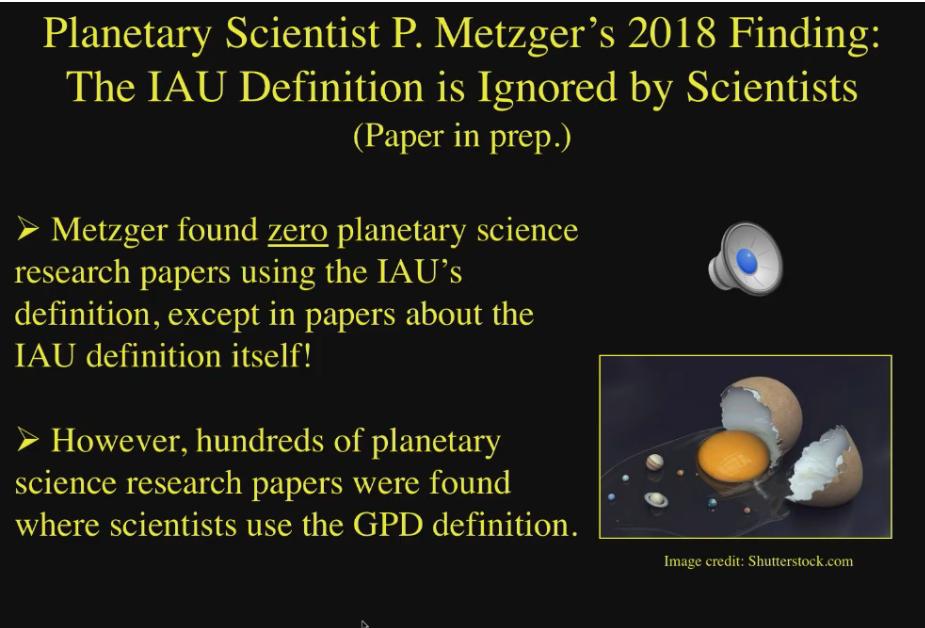[Again, I have to disagree with that framing-Forging an agreement on terms of debate is crucial to scientific inquiry]
(I wonder what he thinks about when he visits a natural history museum.)

(This could be complicated...)
Ekers: It is important to understand split b/w 8 planets & Pluto
Stern: Big picture-3 classes of planet in our solar system & more beyond
Ekers: IAU is not about planetary science, but it is about international collaboration. Naming isn't science.
(The irony is palpable!)
Ekers (@IAU_org definition of a planet) is marked in green.
@AlanStern (geophysical definition of a planet) is marked in blue.
It would seem that there's a clear winner.
(Presumably, the IAU, as a fan of referenda, will revisit the issue...)

lhall.hosted.exlibrisgroup.com/vwebv/holdings…







